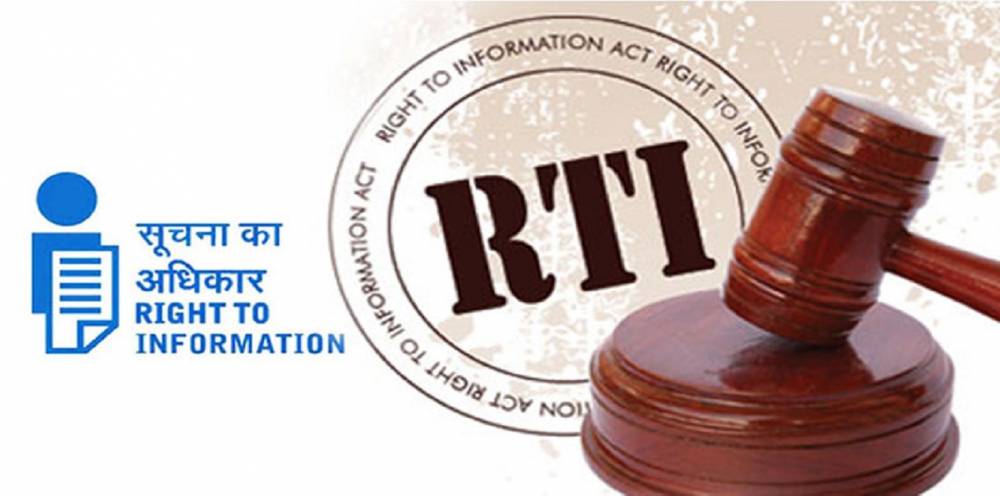-
Admin
- 21 February 2024
The Right to Information: Balancing Transparency and Privacy
The Right to Information (RTI) Act stands as a beacon of transparency and accountability, empowering citizens to access vital information held by government bodies. Enshrined in democratic principles, it serves as a tool for fostering informed decision-making and holding authorities accountable for their actions. However, beneath the surface of this legislative triumph lies a nuanced debate, where proponents advocate for its role in promoting good governance, while opponents raise concerns about its potential misuse and administrative burden. In navigating this discourse, the RTI Act emerges not only as a pillar of democratic governance but also as a subject of ongoing scrutiny and refinement.

The Right to Information (RTI) Act empowers citizens to access government records and information, fostering transparency, accountability, and participatory democracy. However, this legislation also elicits debates regarding its efficacy and potential drawbacks. This discourse examines both the merits and demerits of the Right to Information Act.
Points in Favor:
-
Transparency and Accountability: The RTI Act serves as a powerful tool for promoting transparency and holding government officials accountable for their actions, thereby combating corruption and ensuring good governance.
-
Empowerment of Citizens: By granting citizens the right to access government information, the RTI Act empowers individuals to make informed decisions, participate in democratic processes, and engage in public discourse on matters of public interest.
-
Enhancement of Public Services: Increased transparency facilitated by the RTI Act encourages government agencies to improve the quality and efficiency of public services, as they are held accountable to citizens for their performance and actions.
-
Fostering Civic Engagement: The RTI Act encourages active citizen engagement in the governance process, promoting a culture of civic responsibility and enhancing the democratic fabric of society by enabling informed participation in decision-making.
-
Promotion of Human Rights: Access to information facilitated by the RTI Act aids in the protection and promotion of fundamental human rights, including the right to freedom of expression, the right to know, and the right to access justice.
Points Against:
-
Privacy Concerns: The RTI Act may compromise individuals' privacy rights by allowing the disclosure of sensitive personal information contained in government records, leading to potential misuse or infringement of privacy.
-
Administrative Burden: Responding to numerous RTI requests can place a significant administrative burden on government agencies, diverting resources and attention away from core functions and service delivery.
-
Misuse and Abuse: There is a risk of misuse and abuse of the RTI Act by individuals or groups with malicious intent, such as filing frivolous or vexatious requests aimed at harassing public officials or undermining government processes.
-
Security Risks: The disclosure of certain sensitive information under the RTI Act may pose security risks, particularly in matters related to national security or law enforcement, potentially compromising ongoing investigations or jeopardizing public safety.
-
Exclusion of Marginalized Groups: Despite its intent to promote transparency and accountability, the RTI Act may inadvertently exclude marginalized and vulnerable groups who lack the resources, awareness, or access to effectively exercise their right to information.
Conclusion: The Right to Information Act stands as a cornerstone of democratic governance, offering both opportunities and challenges in its pursuit of transparency, accountability, and citizen empowerment. While it serves as a potent tool for fostering transparency and civic engagement, it also raises concerns regarding privacy, administrative burden, and potential misuse. Striking a balance between these competing interests requires continuous evaluation, refinement, and adaptation of the legal framework to ensure that the right to information remains a cornerstone of democratic governance while safeguarding individual rights and interests.
Discover Excellence at AVKS ACADEMY
ENROLL NOW : https://shorturl.at/jotKO
Visit our website : AVKS Academy One of the Leading Insitute for UPSC CAPF Exam Preparation in India.
or contact us today to embark on your journey to greatness. Your success story begins here!"
Contact : 7093777494 , 7404460797
TELEGRAM : https://t.me/avksacademycapfac
INSTAGRAM : https://instagram.com/avkscapf?igshid=MzRlODBiNWFlZA==

